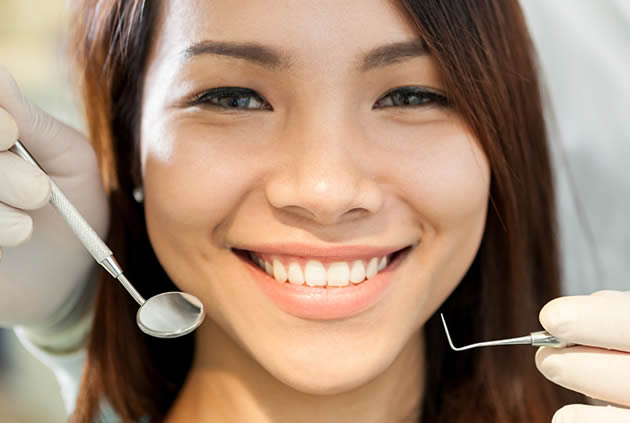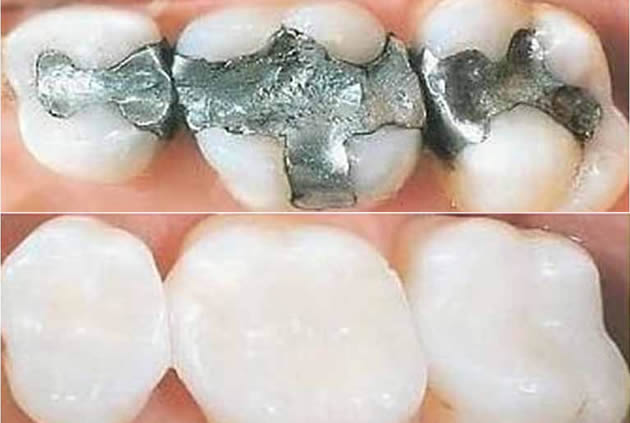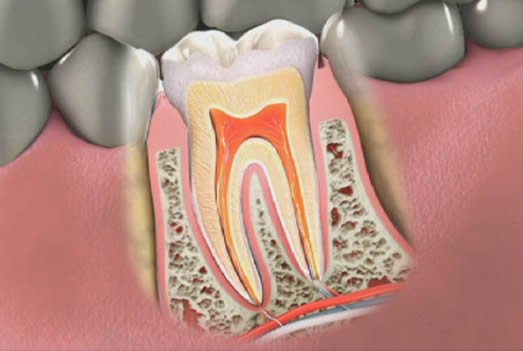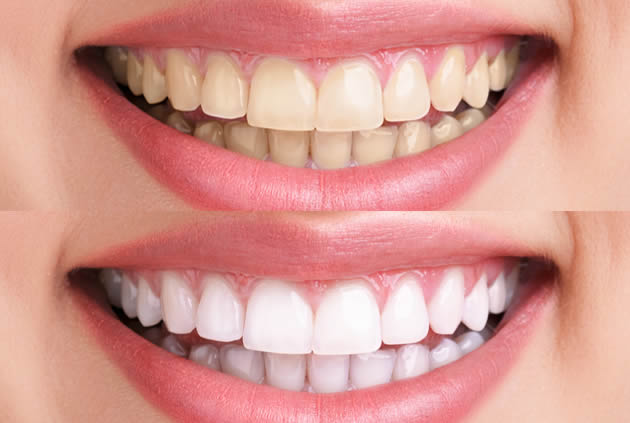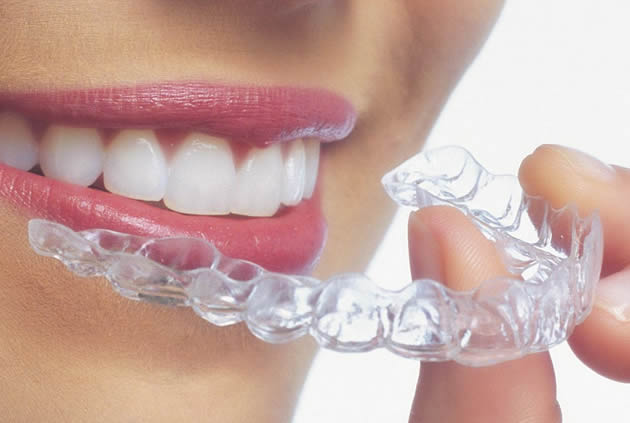
For many people, having straight teeth is a goal they hope to achieve.
For many people, having straight teeth is a goal they hope to achieve. Not only do straight teeth improve one’s appearance, but they also contribute to better oral health.
Orthodontic treatment is the process of aligning teeth using various orthodontic devices such as braces or Invisalign. While orthodontic treatment can be costly and time-consuming, the benefits of having straighter teeth are worth the effort.
Invisalign and Braces
Braces consist of metal brackets affixed to each tooth that are connected by wires. They exert pressure on the teeth to move them into proper alignment gradually. On the other hand, Invisalign consists of clear plastic aligners worn over your teeth that gradually push them into position over time.
While both Invisalign and braces are effective in straightening teeth, they have significant differences that make one a better option for certain individuals. Factors such as cost, personal preference, severity of malocclusion, compliance with treatment plan should all be considered when choosing between these two treatments for straightening your smile.
Choosing between braces or Invisalign will depend upon various factors like personal preference regarding appearance & maintenance requirements; severity level related to orthodontic issues being addressed; cost considerations; convenience factor with either option etc. Ultimately it’s the orthodontist that will determine which treatment plan is best suited to meet your needs based on various factors specific to you.
Invisalign: A Clear Alternative
Invisalign Treatment Process
Invisalign is an orthodontic treatment that uses a series of clear, removable aligners to straighten teeth. The process begins with a consultation with an orthodontist who will evaluate the patient’s teeth and determine if Invisalign is a viable option.
If so, digital images and impressions of the patient’s teeth are taken to create a 3D model which will serve as the basis for designing the custom aligners. Once the aligners are ready, they are worn for approximately two weeks before being replaced by a new set.
This process continues until the desired tooth movement is achieved. The length of treatment varies depending on individual cases.
Advantages of Invisalign
Invisible Appearance
One of the most significant advantages of Invisalign is its nearly invisible appearance. The clear plastic aligners blend with the natural color of teeth, making them an excellent choice for those who want to straighten their teeth without attracting attention.
Removable Aligners
Another advantage is that Invisalign aligners are removable. This feature allows patients to eat, brush, and floss as usual without hindrance from wires or brackets. It also makes it easier to clean aligners and maintain good oral hygiene.
No Food Restrictions
Unlike traditional braces which require careful consideration when it comes to food choices, there are no restrictions on what you can eat while undergoing Invisalign treatment since they can be removed during meals.
Disadvantages of Invisalign
Limited Effectiveness for Complex Cases
While effective for many mild to moderate cases, complex orthodontic issues such as severe overcrowding or bite problems may require traditional braces for the best results. Orthodontists will evaluate each patient’s unique needs to determine if Invisalign is a suitable option.
Requires Discipline to Wear Aligners Consistently
Invisalign aligners must be worn for at least 22 hours per day, which requires discipline and dedication. Patients must be committed to wearing the aligners as prescribed to ensure the treatment progresses correctly and achieves the desired results within an optimal timeframe. Failure to do so may prolong treatment or result in unsatisfactory outcomes.
Braces
Braces treatment process
Braces are a popular orthodontic option that involves attaching brackets to the teeth and connecting them with archwires. Over time, the wires are adjusted to move the teeth into the proper position. The process typically takes anywhere from one to three years, depending on the complexity of the case.
Advantages of Braces:
Effective for complex cases
While Invisalign is effective for many mild to moderate cases, braces are often a better option for more complex orthodontic issues. For example, severely crooked teeth or significant bite problems may require the use of traditional braces. Braces also allow for greater control over tooth movement and can address more severe overcrowding than Invisalign.
Can be less expensive than Invisalign
One significant advantage of traditional braces is their lower cost compared to Invisalign. The average cost of braces ranges from $3,000-$7,000 while Invisalign can cost $4,000-$8,000 or more. This makes braces a more accessible option for many individuals and families.
Disadvantages of Braces:
Food restrictions
One major disadvantage of traditional braces is that patients must avoid certain foods that can damage or dislodge brackets and wires. Sticky candies like taffy and bubblegum should be avoided as well as hard foods like popcorn kernels and ice cubes because they can bend wires or break brackets.
Disadvantages of Braces: Visible appearance
Another disadvantage is their visible appearance. While some patients embrace their new look with stylish rubber band colors or designs on their brackets others may feel self-conscious about having metal in their mouth during treatment especially adults in professional settings making this treatment less desirable for them.
Comparison between Invisalign and Braces
When it comes to choosing between Invisalign and braces, there are some important factors to consider. The comparison can be made in terms of cost, effectiveness, and convenience.
Cost comparison between the two treatments
One of the biggest factors that people consider when deciding between Invisalign and braces is the cost. Generally speaking, Invisalign is more expensive than traditional braces.
This is because Invisalign requires custom-made aligners that are designed specifically for each patient. Additionally, since Invisalign is a newer technology than traditional braces, it comes with a higher price tag.
However, it’s worth noting that many dental insurance plans will cover both types of treatment up to a certain amount. Patients should consult their insurance provider to see what their policy covers.
Effectiveness comparison based on the complexity of the case
When it comes to effectiveness in treating orthodontic issues, both Invisalign and braces can be highly effective tools depending on the complexity of each individual case. In general, traditional braces tend to be more effective for complex cases such as severe overcrowding or significant bite issues.
Braces use wires and brackets that apply constant pressure on teeth which allows for more precise control over tooth movement. On the other hand, if your orthodontic issues are less complex or bite-related (such as minor spacing or crowding), then clear aligners like Invisalign may be an excellent choice.
Convenience comparison based on maintenance requirements
Maintenance requirements are another factor to consider when comparing Invisalign and braces. Both treatments require regular visits with an orthodontist for adjustments but there are some notable differences in convenience: With traditional metal braces food restrictions need to be adhered too since certain foods can damage brackets or get stuck in wires which can prolong the treatment process.
In contrast, Invisalign allows for removal of aligners before eating, so there are no food restrictions with Invisalign. Another advantage of Invisalign is that it doesn’t require as much maintenance as metal braces.
Patients wearing braces need to brush and floss around the brackets which can be difficult to reach and clean. On the other hand, Invisalign aligners can be easily removed and cleaned with a toothbrush and cleaning solution.
Overall, when deciding between Invisalign versus braces, you should think about your specific situation and preferences. Factors such as cost, effectiveness, convenience, and aesthetics should all be weighed to make an informed decision about which treatment option is best for you.
Choosing between Invisalign and braces
Choosing requires careful consideration of individual factors such as the complexity of the case, personal preferences, and lifestyle. Invisalign provides a discreet alternative with removable aligners that allow for more flexibility in terms of eating and oral hygiene.
On the other hand, braces are more effective for complex cases requiring significant corrections and are generally less expensive. It is essential to consult with an orthodontist to determine which treatment option is best suited for your specific dental needs.
Researching patient reviews and studying before-and-after photos can also provide valuable insights into each option’s effectiveness in achieving desired results. Ultimately, both Invisalign and braces can provide excellent results in straightening teeth and improving oral health.
The final decision should be based on an individual’s unique circumstances, lifestyle, and budget. With ongoing advancements in orthodontic technology, patients have access to a range of options that can help them achieve their ideal smile.
Take the first step towards optimal oral hygiene. Reserve your dental appointment at our Baltimore dental office now and experience personalized care.

Nail biting, also known as onychophagia, is a common habit that involves compulsively biting or chewing on one’s nails. It’s often considered a nervous habit and can occur in both children and adults.
While many people view nail biting as a harmless habit, it can have negative physical and emotional consequences. In this article, we will explore the prevalence of nail-biting, why people bite their nails, the consequences of nail-biting, and how to stop this harmful habit.
Definition of Nail Biting
Nail biting is characterized by the habitual act of biting or chewing on one’s fingernails or toenails. This behavior can occur in response to stress or anxiety, boredom or inactivity, or perfectionism and obsessive-compulsive tendencies. The act of nail-biting itself may seem benign at first glance but over time it can become a compulsive behavior that adversely impacts physical health.
Prevalence of Nail Biting
Nail biting is a widespread problem affecting approximately 20-30% of the general population. It’s more common among children and teenagers than adults with studies showing that up to 45% of adolescents engage in the behavior compared to only 5% – 15% adults. Furthermore, it affects men more than women with males being three times more likely to bite their nails than females.
Negative Effects of Nail Biting
While some may view nail-biting as a harmless habit, it can lead to several negative physical and emotional consequences that are both distressing and unsightly. Physically speaking excessive nail-biting has been associated with infections like paronychia (nail bed infection), illnesses like colds where germs enter through broken skin around the nails, dental problems like teeth misalignment from constant pressure caused by biting nails , and skin damage around the nail bed.
Additionally, it can also cause emotional consequences such as low self-esteem and social stigma. Nail biters may feel ashamed of their habit, avoid social situations out of embarrassment, or experience anxiety related to their appearance.
Why People Bite Their Nails
Nail biting, also known as onychophagia, is a common habit that is often seen in children but can continue into adulthood. It is estimated that up to 50% of children and 30% of adults bite their nails. While nail biting may seem harmless, it can have negative physical and emotional consequences.
But why do people bite their nails? Here are some reasons:
Stress and Anxiety
One of the most common reasons people bite their nails is to cope with stress and anxiety. Nail biting provides temporary relief from tension and helps individuals feel more in control.
When people are anxious or nervous, they may unconsciously start chewing their nails as a way to calm down. Research has shown that nail-biting releases endorphins, which are chemicals in the brain that produce feelings of pleasure or happiness.
These endorphins create a sense of relaxation and calmness when someone bites their nails. However, this relief is short-lived, and the cycle of nail-biting can quickly become a repetitive habit.
Boredom or Inactivity
Another reason for nail-biting is boredom or inactivity. Nail biting can become a mindless activity that fills empty time throughout the day.
For example, when waiting for an appointment or sitting through a long meeting, people may turn to nail biting as something to do. In addition to being an idle activity, nail biting may also provide stimulation for some individuals which could be why it becomes habitual.
Perfectionism or Obsessive-Compulsive Tendencies
Some individuals bite their nails due to perfectionism or obsessive-compulsive tendencies. They have an intense desire for perfectionism and may turn to grooming behaviors like nail-biting as a way to achieve this idealized image.
Obsessive-compulsive tendencies can also play a role in nail-biting, especially for those who feel a sense of compulsion to do it. They may feel like they must bite their nails to relieve tension or to achieve a sense of order and control in their lives.
Understanding the reasons why people bite their nails is essential when trying to break the habit. By identifying the underlying causes, individuals can take steps to address them and overcome nail-biting behaviors.
The Consequences of Nail Biting
Nail biting can have both physical and emotional consequences. While it may seem like a harmless habit, the negative effects of nail biting should not be ignored.
Physical Consequences
1) Infections and Illnesses: Our hands are filled with germs, bacteria, and viruses. When we bite our nails, we expose ourselves to these harmful microorganisms.
This increases the risk of infections such as paronychia (an infection around the nail), warts, and herpes simplex virus (cold sores). Additionally, colds and other respiratory illnesses can easily spread from our fingers to our mouths.
2) Dental problems: Nail biting can cause significant damage to our teeth over time. It can lead to chipped or broken teeth, misaligned teeth, and even tooth loss in severe cases.
The constant pressure from biting down on hard nails can also cause jaw pain or temporomandibular joint disorder (TMJ).
3) Skin Damage: Nail biting can damage the skin around the nail bed as well as the cuticles. This can lead to bleeding, swelling, or even permanent scarring if left untreated.
Emotional Consequences
1) Low Self-Esteem: Nail biters often feel embarrassed about their habit and may try to hide their fingers from others. This can result in feelings of shame or insecurity that eventually affect their self-esteem.
They may avoid social situations that require showing their hands or feel uncomfortable when meeting new people for fear of being judged. 2) Social Stigma: In addition to low self-esteem issues, nail biters often experience social stigma associated with their habit.
Others may judge them as being nervous or anxious individuals who lack self-control. This can lead to negative social interactions and even bullying.
Nail biting may seem like a harmless habit, but it can have serious consequences. The physical effects include infections, dental problems, and skin damage.
The emotional side effects include low self-esteem and social stigma. It’s important to address the habit in order to avoid these negative outcomes.
How to Break the Nail Biting Habit
Nail biting is a habit that can be challenging to break, but it is not impossible. The following are some tips to help you stop biting your nails and keep them healthy:
Identify Triggers and Replace the Habit with a Healthier One
One of the most effective ways to stop nail biting is by identifying what triggers this behavior and replacing it with something healthier. For instance, if stress or anxiety makes you bite your nails, try relaxation techniques like deep breathing, meditation, or yoga. If boredom or inactivity contributes to your nail-biting habit, find other activities that keep your hands busy like puzzles or crafts.
Use Deterrents Like Bitter-tasting Nail Polish, Gloves Or Fidget Toys
Another way to break the nail-biting habit is by using deterrents. These are products or items that make it difficult for you to bite your nails.
One of the most popular deterrents is bitter-tasting nail polish which has an unpleasant taste that discourages you from putting your fingers in your mouth. Gloves provide a physical barrier between your teeth and nails while fidget toys keep your hands occupied.
Seek Professional Help if Necessary
Breaking any bad habit can be difficult on one’s own; it may require the help of a professional especially when it comes to nail-biting. A therapist can help you address underlying emotional issues like stress or anxiety and give advice on how best to manage them without resorting to nail biting as a coping mechanism.
In severe cases where self-help measures are not effective, an oral medication known as N-acetyl cysteine (NAC) may be prescribed by a doctor as studies show that NAC helps reduce repetitive behaviors like nail biting. Nail biting can have negative health effects both physically and emotionally.
To stop this habit, one should identify triggers and replace the habit with healthier alternatives, use deterrents like bitter-tasting nail polish, gloves or fidget toys and seek professional help if necessary. Breaking the habit may require commitment and time, but it is worth it in the end for improved health and self-esteem.
Nail-biting is a habit that affects people of all ages.
This habit can have negative physical and emotional consequences, making it important to break the cycle. Fortunately, there are various ways to stop the habit, including identifying triggers, using deterrents, and seeking professional help.
The Road to Improved Health
By breaking the nail-biting habit, individuals can experience improved health benefits. Nail biters often suffer from infections and illnesses due to the germs that gather under their nails. Such infections can lead to more severe health problems if left untreated.
In addition to physical benefits, quitting nail biting also improves psychological well-being by reducing anxiety levels. The reduction in anxiety leads to improved self-esteem levels and overall life satisfaction since they no longer feel ashamed of their appearance or be criticized for their bad habit by others.
Breaking The Habit Is Worth It
Biting nails may seem like an innocent habit but it is a form of body-focused repetitive behavior (BFRB), which can cause serious damage. It takes time and effort but stopping this addictive behavior is worth it as one will enjoy better health outcomes than ever before. With determination and resolve together with strategies mentioned above such as identifying triggers or using deterrents some people have found success in overcoming this destructive pattern of behavior.
Breaking the nail-biting habit requires effort and patience but it is worth it for improved physical and mental health outcomes as well as increased self-esteem levels that accompany healthier habits. By adopting healthy habits like getting enough sleep or regular exercise after quitting this bad habit leads one towards a happier life overall!
Do not let another day go by without taking care of your dental needs. Request an appointment now at our Baltimore dental office!

Oral Cancer
Oral cancer is a relatively uncommon, but potentially life-threatening disease that affects various parts of the mouth, including the lips, tongue, gums, palate, and throat. While its incidence rate is lower compared to other types of cancers such as breast or lung cancer, early detection remains crucial in improving the prognosis and increasing the chances of successful treatment. In this article, we will discuss in detail the definition of oral cancer and why it’s important to be aware of its symptoms.
Definition of Oral Cancer
Oral cancer refers to any malignant cell growth that occurs within or around the oral cavity. In most cases, it starts with abnormal cells that multiply uncontrollably and eventually form a tumor.
This type of cancer can form on different areas inside the mouth like gums, tongue or lips or even on salivary glands and tonsils. There are several types of oral cancers including squamous cell carcinoma which is one of themost common type accounting for more than 90% cases.
Importance of Early Detection
Early detection is critical when it comes to battling oral cancer because it can significantly increase chances for successful treatment. Unfortunately many people do not realize they have oral issues until it becomes too late as symptoms may not appear until later stages which makes treatment more difficult. But by being aware an individual can be able to identify some signs early enough before they advance into a serious condition.Thus regular dental check-ups are also important for early diagnosis where dentist checks inside your mouth for any abnormalities.
Statistics on Oral Cancer Cases
According to American Cancer Society estimates in 2021 almost 54,000 individuals will be diagnosed with oral cavity or oropharyngeal cancers in US alone . It is estimated that there will be approximately 10,850 deaths from these cancers.In fact despite advances in medical treatments over the past few decades, the death rate for oral cancer has remained relatively high due to late diagnosis. This underscores the importance of being vigilant about detecting and treating oral cancer as early as possible.
Risk Factors for Oral Cancer
Tobacco Use (Smoking and Chewing)
Tobacco use is one of the primary risk factors for oral cancer. This includes both smoking and chewing tobacco.
Smoking cigarettes, cigars or pipes exposes the mouth to harmful chemicals that can damage the cells in the mouth, leading to cancer over time. Smokeless tobacco, such as chewing tobacco or snuff, is also dangerous because it contains carcinogenic chemicals that are absorbed through the lining of the mouth and can contribute to cancer development.
Alcohol Consumption
Heavy alcohol consumption is another major risk factor for oral cancer. When combined with tobacco use, alcohol consumption greatly increases a person’s risk of developing oral cancer. Alcohol weakens the cells in the mouth and makes them more susceptible to damage from other carcinogens.
HPV Infection
The human papillomavirus (HPV) is a sexually transmitted infection that has been linked to an increased risk of oral cancer. HPV-related oral cancers tend to occur in younger patients who do not have a history of tobacco or alcohol use. It’s important for people to remember that HPV-related cancers are not exclusively caused by sexual activity but also could be caused by just sharing utensils like forks etc.
Sun Exposure
Prolonged exposure to sunlight can increase a person’s risk of lip cancer – a type of oral cancer that affects the lips specifically. This is because excessive exposure causes damage to lip cells which can lead to DNA damage overtime resulting in an increased potential for developing malignant tumors on lips especially lower lip due its greater exposure compared with upper lip.. It’s recommended that individuals limit their sun exposure and apply SPF-containing lip balm when out in direct sunlight for prolonged periods..
Symptoms of Oral Cancer
Oral cancer is a deadly disease that can manifest itself in several ways. The signs and symptoms of oral cancer can be difficult to identify, especially in the early stages when the symptoms are often subtle or absent. However, it is important to be mindful of any changes in your mouth or throat and seek medical attention if you notice any unusual growths or lesions.
Sores or ulcers that do not heal within 2-3 weeks
One of the most common symptoms of oral cancer is a sore or ulcer that does not heal within 2-3 weeks. These sores may be painless at first but gradually become painful over time. Sores can occur anywhere in the mouth including on the tongue, lips, gums, and roof of the mouth.
Red or white patches in the mouth
Another symptom to look out for is red or white patches inside the mouth. These patches may appear as flat lesions on the tongue, cheeks, gums, or other areas inside the mouth. They may also appear as raised bumps or thickened areas.
Difficulty swallowing or speaking
Difficulty swallowing (dysphagia) can also be an early sign of oral cancer. This occurs when there is a sense of food getting stuck in your throat while eating. Similarly, difficulty with speech (dysarthria) can also occur due to changes in muscle control and sensation around your tongue.
Chronic sore throat or hoarseness
A chronic sore throat and hoarseness could indicate a problem with your vocal cords which could be caused by cancerous growths inside your throat. A persistent cough accompanied by bloodstained mucus should definitely prompt urgent medical attention from qualified professionals.
It is important to keep track of any changes in your oral health and seek immediate medical attention if there are any unusual symptoms or growths. Early detection is key to successful treatment of oral cancer.
Diagnosis and Treatment of Oral Cancer
Oral examination by a dentist or doctor
The first step in the diagnosis of oral cancer is a thorough oral examination by a dentist or doctor. During this exam, the healthcare professional will look for any anomalies in the mouth, including lumps, bumps, ulcers, or discolored patches.
They may also examine the head and neck areas to check for any swollen lymph nodes. This process is vital because it can help detect early signs of oral cancer before they progress to more advanced stages.
Biopsy to confirm diagnosis
If anything suspicious is found during the oral examination, a biopsy may be recommended to confirm the diagnosis of oral cancer. A biopsy involves removing a small piece of tissue from the affected area and examining it under a microscope to identify any abnormal cells. This procedure is usually performed under local anesthesia and can be done in an outpatient setting.
Treatment options including surgery, radiation therapy and chemotherapy
Treatment options for oral cancer depend on various factors such as stage and location of cancer, patient’s overall health status etc. Surgery is often recommended as an initial treatment option especially if it’s located in one specific area which can be easily removed without damaging any other structures nearby. Radiation therapy uses high-energy radiation beams to kill cancer cells while chemotherapy uses drugs that target fast-growing cells throughout your body including cancer cells though it has several side effects like hair loss, nausea etc.
In certain cases, combination therapies that incorporate surgery with radiation therapy or chemotherapy are used to improve outcomes for patients with more advanced forms of oral cancer. It’s important to consult with an experienced surgeon and oncologist who specializes in treating this type of cancer so they can provide individualized recommendations based on various factors like health status, location/stage etc., tailored specifically for each patient’s unique care plan needs.
Prevention Strategies for Oral Cancer
Avoiding Tobacco Products and Alcohol Consumption
Smoking and chewing tobacco products are some of the leading causes of oral cancer. The chemicals found in tobacco can damage the cells in the mouth, making it more susceptible to cancerous growth.
Alcohol consumption can also increase the risk of oral cancer, particularly when combined with smoking or chewing tobacco. Therefore, limiting or avoiding these substances altogether can significantly reduce one’s risk of developing oral cancer.
Practicing Good Oral Hygiene Habits
Maintaining healthy oral hygiene practices is an essential part of preventing oral cancer. Brushing teeth at least twice a day and flossing daily help remove harmful bacteria that may cause damage to the cells in the mouth. Using alcohol-free mouthwash that contains fluoride after brushing and flossing helps kill harmful bacteria that may have been missed by brushing.
Getting Vaccinated against HPV Infection
Human papillomavirus (HPV) is a sexually transmitted virus that has been linked to an increased risk of developing oral cancer, particularly in younger individuals. The HPV vaccine is one available measure for preventing this type of infection. It is recommended to get vaccinated against HPV between ages 9-14 but can be given up until age 26.
Incorporating these preventive measures into one’s lifestyle can help minimize their risk of developing oral cancer significantly. Avoiding tobacco products and alcohol consumption, practicing good dental hygiene habits such as brushing and flossing daily, using alcohol-free mouthwash with fluoride and getting vaccinated against HPV are all ways you can protect yourself from this deadly disease.
The Role of Dentists in Early Detection of Oral Cancer
Regular dental check-ups are crucial in the prevention and early detection of oral cancer. Dentists have a vital role in identifying any unusual changes in the mouth, including signs of oral cancer.
During a regular dental exam, dentists will perform an oral examination to detect any abnormalities like sores or ulcers that do not heal for two to three weeks, red or white patches inside the mouth, difficulty swallowing or speaking, chronic sore throat or hoarseness. Early detection of these symptoms can lead to immediate treatment and improve the chances of successful recovery.
Regular Dental Check-Ups as a Preventive Measure
Going for regular dental check-ups is not only good for preventive care but also an excellent way to detect early signs of oral cancer. People who visit their dentist regularly have better chances of preventing many diseases, including oral cancer. By doing routine check-ups at least twice a year, people can identify potential concerns that may require further investigation and treatment.
Dentist’s Role in Identifying Early Signs of Oral Cancer
Dentists play a key role in identifying early signs of oral cancer before they become visible symptoms. They use various diagnostic tools such as visual exams, tissue biopsies, and imaging tests like X-rays and CT scans to identify suspicious changes in the mouth’s tissues that could indicate malignant growths. If there is any evidence suggesting cancerous growths present during an examination, dentists will refer patients to specialists who can do additional testing to confirm diagnosis.
Oral cancer is a serious condition that can be deadly if not detected and treated early.
Through understanding the risk factors, symptoms, and preventive strategies, you can take steps to protect yourself from oral cancer.
Always keep an eye out for any unusual changes in your mouth and seek professional help if you notice anything suspicious. Remember that early detection is key to successful treatment.
- Oral cancer is a type of cancer that affects the mouth, tongue, lips or throat.
- Risk factors include tobacco use (smoking and chewing), alcohol consumption, HPV infection, and sun exposure.
- Symptoms of oral cancer include sores or ulcers that do not heal within 2-3 weeks, red or white patches in the mouth, difficulty swallowing or speaking.
- Diagnosis is made through an oral examination by a dentist or doctor followed by biopsy to confirm diagnosis.The main treatment options are surgery, radiation therapy and chemotherapy.
- The most effective prevention strategies are avoiding tobacco products and alcohol consumption as well as practicing good oral hygiene habits. Getting vaccinated against HPV infection can also reduce your risk of developing oral cancer.
- Dentists play an important role in the early detection of oral cancer through regular dental check-ups as a preventive measure and identifying early signs of oral cancer.
The importance of being aware of the risks and symptoms associated with oral cancer cannot be overstated. By educating yourself on this topic you will be better equipped to protect yourself from this deadly disease. Taking simple measures such as quitting smoking or consuming alcohol in moderation can greatly reduce your risk for developing this disease.
Additionally regular dental check-ups are important to catch any early signs of oral cancer. Remember that early detection is key to successful treatment, and that by taking action to protect yourself and staying vigilant, you can greatly reduce your risk for developing oral cancer.
Do not wait any longer. Book your appointment now and achieve the smile you have always wanted. Dr. Farrugia is accepting new patients from Baltimore and the surrounding area.

The True Cost of Neglecting Oral Hygiene
Maintaining good oral hygiene is essential to overall health and wellbeing. It’s not just about having a bright, healthy smile, but neglecting your dental health can lead to serious health problems.
Poor oral hygiene is linked to gum disease, tooth decay, and even heart disease. Studies have also shown that poor dental hygiene can increase the risk of cancer and Alzheimer’s disease.
The Importance of Oral Hygiene
Oral hygiene refers to the practice of keeping our mouth clean and healthy through regular brushing, flossing, and rinsing with mouthwash. Good oral hygiene prevents tooth decay, gum inflammation, bad breath or halitosis as well as other dental issues which could lead to serious medical conditions.
Dental experts recommend brushing at least twice a day for two minutes each time and flossing daily in order to remove bacteria from the mouth that cause plaque build-up. Regular dentist visits are also crucial in maintaining good dental health as they help catch any potential issues before they turn into larger problems.
Neglect Can Lead To Serious Health Problems
Neglecting your oral hygiene routine may seem like a minor issue at first but it can lead to serious problems down the road. Gum disease is one of the most common issues that result from poor oral care. Symptoms include swollen gums, bleeding while brushing or flossing, sensitive teeth and receding gums.
If left untreated over time periodontitis (advanced gum disease) can occur which leads ultimately leads to tooth loss as well as more severe medical conditions such as diabetes or heart disease. it’s clear that taking care of our teeth is important not only for aesthetic reasons but for overall physical health.
Neglecting our oral hygiene routine can lead to serious health problems down the line. It’s important to make dental care a priority in our daily lives by brushing, flossing, and visiting the dentist regularly.
High Level Overview of Oral Hygiene
Definition of oral hygiene
Oral hygiene refers to the practice of maintaining clean and healthy teeth, gums, and tongue. It involves daily routines such as brushing and flossing, as well as regular visits to the dentist. Good oral hygiene is essential for preventing tooth decay, gum disease, bad breath, and other dental problems that can lead to more serious health issues.
Importance of brushing and flossing regularly
Brushing your teeth twice a day is a fundamental part of oral hygiene. It helps remove plaque – a sticky film of bacteria – from the surface of your teeth.
Flossing once a day ensures that you clean between your teeth where your brush cannot reach. This prevents the buildup of plaque in those hard-to-reach areas.
Regular brushing and flossing also help prevent cavities from forming by removing food particles from in between teeth where bacteria can thrive. Furthermore, it helps keep gums healthy by massaging them and increasing blood flow.
How to choose the right toothbrush and toothpaste
Choosing the right toothbrush is just as important as brushing itself. You should opt for a soft-bristled brush with a small head that can easily reach all areas inside your mouth.
Toothpaste should contain fluoride – an essential mineral that helps strengthen tooth enamel – but avoid products containing harsh abrasives or detergents that could damage your enamel or irritate your gums. When selecting either product you should always read labels carefully before making any purchases.
The Benefits of Using Mouthwash
Mouthwash is an important tool in maintaining good oral hygiene. It not only freshens your breath but also reduces the amount of plaque and bacteria in your mouth, preventing gum disease and tooth decay.
Some types of mouthwash even contain fluoride, which can help strengthen tooth enamel and prevent cavities. However, it’s important to use mouthwash correctly.
You should swish it around in your mouth for at least 30 seconds before spitting it out. Be careful not to swallow it, as some types of mouthwash contain alcohol or other harmful ingredients that can be harmful if ingested.
The Importance of Tongue Cleaning
Many people focus solely on brushing their teeth and neglect their tongue, but cleaning your tongue is just as important for maintaining good oral hygiene. The tongue harbors bacteria that can lead to bad breath and even periodontal disease if left unchecked.
To clean your tongue properly, use a tongue scraper or the bristles on the back of your toothbrush to gently remove any debris or bacteria from the surface. Be sure to clean all areas of the tongue, including the back and sides.
How to Properly Clean Your Braces or Dentures
If you wear braces or dentures, it’s essential to care for them properly in order to maintain good oral health. For braces, use a special orthodontic brush with soft bristles to clean around the brackets and wires.
Floss threaders can be used to floss between teeth and under the wire. For dentures, rinse them after every meal with water or a mild soap solution before brushing them with a soft-bristled brush and non-abrasive cleaner specifically designed for dentures.
Avoid using regular toothpaste on dentures as they may be too abrasive. Taking care of oral hygiene requires more than just brushing and flossing.
Using mouthwash, cleaning your tongue, and properly cleaning braces or dentures are all important aspects of maintaining good oral health. With proper care and attention, you can prevent gum disease, tooth decay, and other serious oral health problems.
The Impact of Diet on Oral Health
Your diet plays a crucial role in maintaining good oral hygiene. Eating foods high in sugar and carbohydrates can cause tooth decay, cavities, and gum disease. Bacteria in the mouth consume sugar and produce acid that destroys the enamel on your teeth.
It is important to limit your intake of sugary snacks, soft drinks, and candy. Instead, incorporate a balanced diet with plenty of vegetables, fruits, whole grains, lean proteins, and low-fat dairy products.
How Saliva Plays a Role in Maintaining Good Oral Hygiene
Saliva is often overlooked when considering oral hygiene but it plays an important role in keeping your mouth clean and healthy. Saliva helps to neutralize acids produced by bacteria in the mouth that can cause tooth decay. It also helps to wash away food particles and debris from teeth and gums.
Additionally, saliva contains enzymes that break down food before it enters the stomach. A dry mouth lacks saliva which can lead to bad breath or halitosis.
The Connection Between Oral Health And Overall Well-Being
Good oral health is not just about having a pretty smile; it has been linked to overall well-being as well. Studies have shown that poor oral hygiene can lead to other serious medical conditions such as heart disease, diabetes, respiratory infections and even Alzheimer’s disease. Poor dental care allows harmful bacteria from your mouth into your bloodstream which can affect other parts of the body leading to various complications.
paying attention to small details like diet or saliva generation may seem insignificant but they play an important role in promoting good oral hygiene. Neglecting any aspect may lead to serious complications eventually affecting overall health which emphasizes why one should not ignore their dental needs!
The Importance of Not Ignoring Oral Hygiene
Oral hygiene is not something to be taken lightly. Maintaining good oral hygiene can prevent serious health problems and ensure a better quality of life.
Neglecting your teeth and gums can lead to tooth decay, gum disease, and even tooth loss. Additionally, poor oral health has been linked to other health issues such as heart disease, diabetes, and respiratory infections.
Ways to Improve Your Daily Routine for Better Dental Care
There are several ways to improve your daily routine for better dental care. First and foremost, it is important to brush your teeth at least twice a day with fluoride toothpaste. Use a soft-bristled brush and replace it every three to four months or when the bristles become frayed.
Flossing at least once per day will help remove food particles between your teeth that brushing cannot reach. Another way to improve your dental care routine is by using mouthwash after brushing and flossing.
Mouthwash helps kill bacteria in your mouth that can cause bad breath and gum disease. It is also important to pay attention to what you eat as diet plays a significant role in maintaining good oral hygiene.
Limit sugary drinks and snacks as they contribute significantly to tooth decay. Regular visits with your dentist are important for maintaining good oral hygiene.
Your dentist can check for any signs of gum disease or other dental issues before they become more serious problems. Incorporating these simple steps into your daily routine will help ensure healthy teeth and gums for years to come!
Take the first step towards a confident smile. Contact our Baltimore dental office to schedule your consultation!










